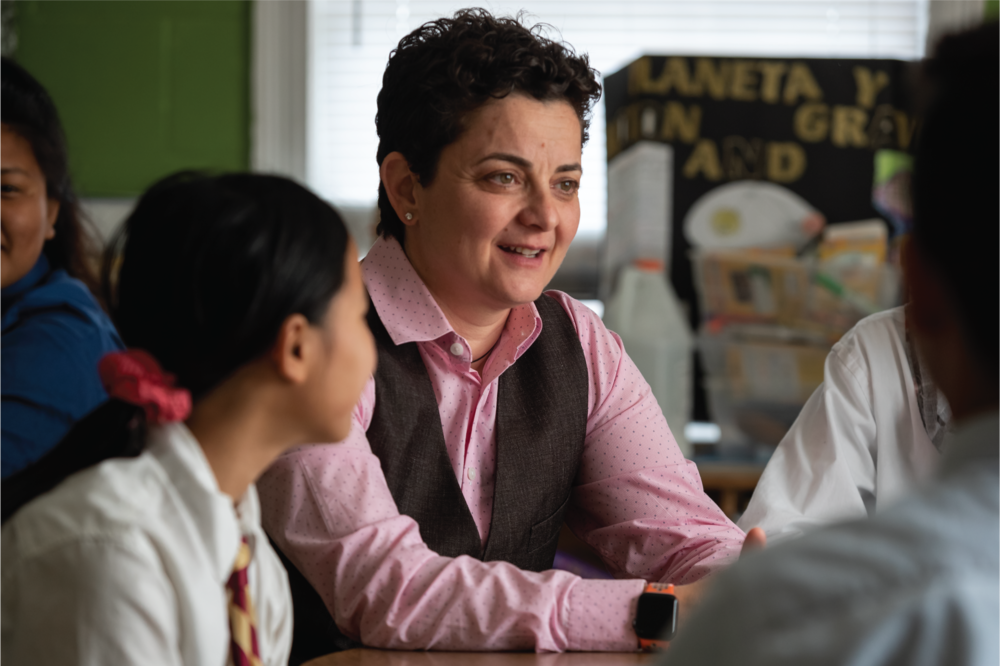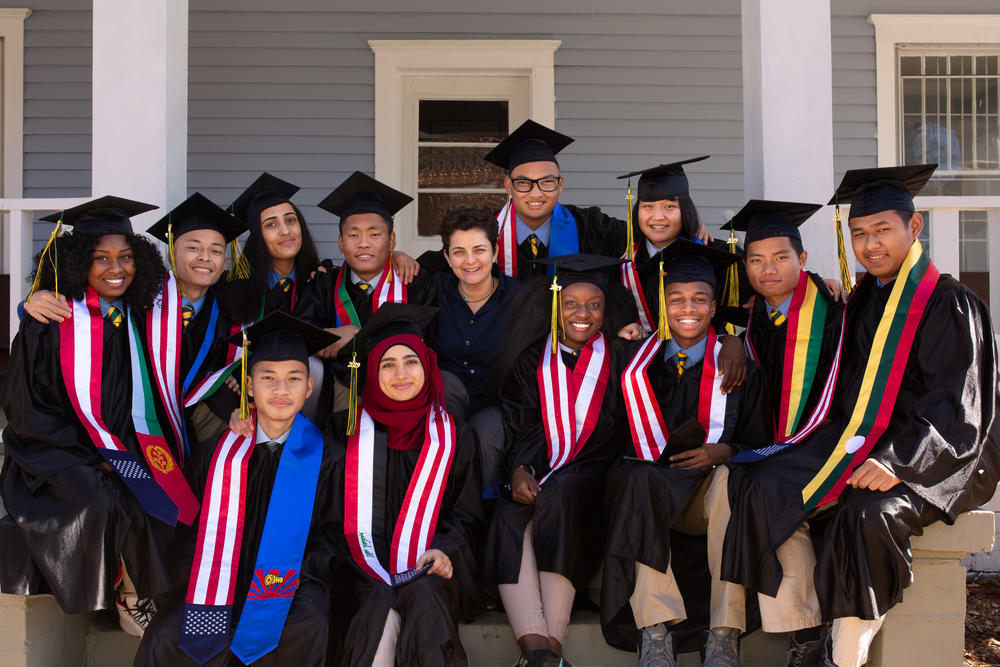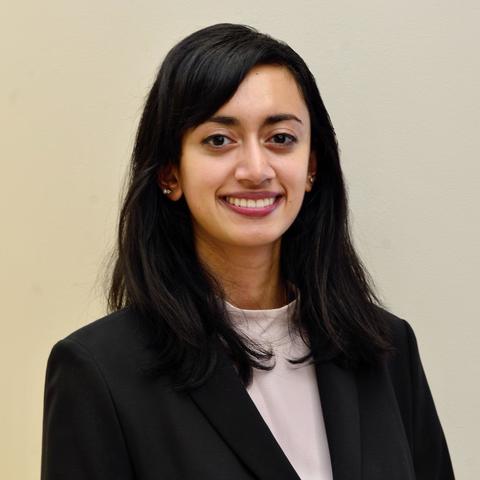Section Branding
Header Content
'Accomplishing The Impossible' Through The Fugees Academy
Primary Content
When Luma Mufleh moved from Jordan to the United States in 1994 to attend Smith College, she didn’t imagine she’d ever be running a full-fledged school for refugees. But today, she’s founder of Fugees Academy in Clarkston, a school specifically tailored for the refugee population that uses soccer and a unique curriculum to help students adjust to life in the United States.
It has a 100% graduation and college acceptance rate, and it was recently named the “Nicest Place in Georgia” for 2019 by Reader’s Digest. Mufleh joined On Second Thought to discuss her journey building educational opportunities for refugee children.
On Second Thought host Virginia Prescott speaks to Luma Mufleh.
It all began when Mufleh took a wrong turn while driving through Clarkson and encountered a group of young kids playing a game of pick-up soccer in the street. “They reminded me of the way I grew up playing soccer in the streets of Jordan,” Mufleh reflected. “And I wanted to play. I’d been feeling homesick, and the game that I loved was right there in front of me.” Mufleh convinced the kids to play by enticing them with the soccer ball that had been sitting in her trunk.
Mufleh went on to build relationships with these kids, eventually tutoring some of the students who were asking for homework help. That’s when she realized that one of them – a boy who’d been in the country for three years – didn’t know how to read or write.
“It shook me to my core,” she says, and asked herself what she would do if this was her child. Mufleh realized that she’d want to send him to a private school to meet his specific needs. “I couldn’t afford [to send him to] a private school, so it was actually cheaper to start one.”
That’s how Fugees Academy was born, with just six students and one teacher in Decatur. The school’s enrollment – and its media attention – grew quickly since then, with an in-depth New York Times profile and Mufleh’s nomination as a CNN Hero in 2016.
That doesn’t mean that everyone’s accepting towards them. “I think the Fugees see the best and worst of America,” Mufleh says of the reactions the school’s soccer team gets as they travel from game to game. Sometimes they’re greeted with Confederate flags and jeers to “go back where you came from;” sometimes they’re invited for a post-game pizza.
Even though the students come from ethnic or religious backgrounds that often violently clash on the international stage, Mufleh believes the biggest success of the school is in the way it brings those groups together – and sometimes can do even more than that. “We have two kids who are dating – one is Karen and one is Rohingya. Where they come from, those groups are murdering each other. And these two kids have managed to find love here.”
Mufleh believes firmly believes we need to refocus our attention on what refugees are capable of, as opposed to what their traumas are. “We underestimate the strength of humans, and especially the strength of kids,” she says. “Their experience has made them so much stronger, that they can accomplish what we consider the impossible.”
Get in touch with us.
Twitter: @OSTTalk
Facebook: OnSecondThought
Email: OnSecondThought@gpb.org
Phone: 404-500-9457




